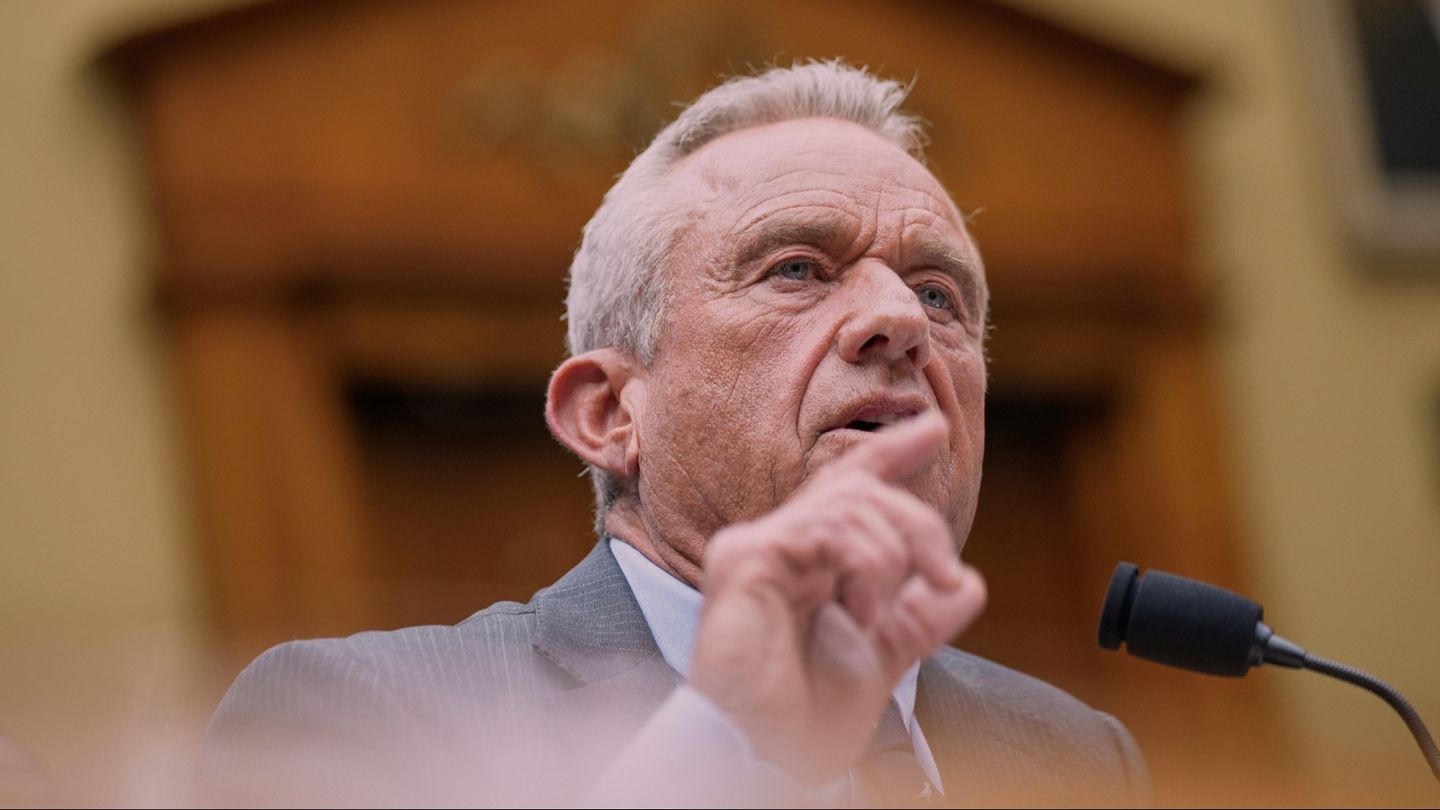US halts funding to group offering vaccines to low-income countries – Euronews.com

US Halts Funding to Global Vaccine Initiative Amid Safety Concerns
Background and Funding Decision
On 26 June 2025, the United States announced it will suspend funding for GAVI, a global organization that provides vaccines to millions of children in lower-income countries. This decision follows statements by US Health Secretary Robert F. Kennedy Jr., who criticized GAVI for allegedly neglecting vaccine safety in its efforts to promote universal vaccination.
US Health Secretary’s Position
- Robert F. Kennedy Jr., a known vaccine skeptic, declared the US will withhold a $1.58 billion (€1.39 billion) pledge made by the previous administration.
- He emphasized concerns regarding the safety of the diphtheria, tetanus, and pertussis (DTP) vaccine, a routine childhood immunization.
- Kennedy referenced a 2017 Danish study suggesting increased mortality risk in infants receiving the DTP vaccine used by GAVI, although this study has been contested by other experts.
- He stated that GAVI’s promotion of universal vaccination has overlooked critical vaccine safety issues.
GAVI’s Response and Vaccine Safety Assurance
- GAVI expressed full confidence in the safety of the DTP vaccine.
- The organization highlighted that lower-income countries face a higher disease burden and lack infrastructure for regular booster doses, justifying the use of the vaccine version they provide.
- GAVI aims to protect vulnerable populations in alignment with Sustainable Development Goal (SDG) 3: Good Health and Well-being.
Funding Goals and Challenges
- GAVI sought to raise $9 billion (€7.9 billion) over five years from international donors during its summit in Brussels but reportedly did not meet this target.
- The funding is critical to advancing SDG 3 by ensuring equitable access to vaccines in low-income countries.
Leadership Perspectives and the Role of Science
José Manuel Barroso, GAVI chair and former European Commission President, expressed optimism about ongoing collaboration with the US administration despite challenges:
- Barroso acknowledged the presence of vaccine misinformation campaigns, especially on social media platforms.
- He emphasized the importance of relying on scientific evidence and factual information to counter disinformation.
- This approach supports SDG 4: Quality Education, by promoting science-based knowledge dissemination.
Implications for Sustainable Development Goals
- SDG 3 (Good Health and Well-being): The suspension of US funding threatens global vaccination efforts aimed at reducing child mortality and combating infectious diseases.
- SDG 10 (Reduced Inequalities): GAVI’s work targets lower-income countries, addressing health disparities through vaccine access.
- SDG 17 (Partnerships for the Goals): The funding dispute highlights challenges in international cooperation essential for achieving health-related goals.
- SDG 16 (Peace, Justice, and Strong Institutions): Combating misinformation and fostering trust in health institutions are critical for effective public health interventions.
Conclusion
The US decision to halt funding to GAVI underscores the complex interplay between public health policy, scientific evidence, and international cooperation. Maintaining support for global vaccination programs is vital to advancing the Sustainable Development Goals, particularly those focused on health equity and well-being for all children worldwide.
1. Sustainable Development Goals (SDGs) Addressed or Connected
- SDG 3: Good Health and Well-being
- The article discusses vaccination programs aimed at protecting children from diseases such as diphtheria, tetanus, and pertussis, which directly relates to ensuring healthy lives and promoting well-being for all ages.
- Concerns about vaccine safety and immunization coverage are central themes.
- SDG 17: Partnerships for the Goals
- The article highlights international funding and cooperation issues, specifically the US funding withdrawal from GAVI, a global vaccine alliance.
- This reflects the importance of global partnerships and financing mechanisms to achieve sustainable development.
2. Specific Targets Under Those SDGs
- Under SDG 3: Good Health and Well-being
- Target 3.8: Achieve universal health coverage, including access to quality essential health-care services and access to safe, effective, quality, and affordable essential medicines and vaccines for all.
- Target 3.b: Support the research and development of vaccines and medicines for communicable and non-communicable diseases that primarily affect developing countries.
- Under SDG 17: Partnerships for the Goals
- Target 17.2: Developed countries to implement fully their official development assistance commitments, including to health-related initiatives.
- Target 17.3: Mobilize additional financial resources for developing countries from multiple sources.
3. Indicators Mentioned or Implied to Measure Progress
- Indicators Related to SDG 3
- Immunization coverage rate among children under 1 year of age (implied by the focus on vaccine distribution and uptake).
- Incidence and mortality rates of vaccine-preventable diseases such as diphtheria, tetanus, and pertussis.
- Adverse events following immunization or vaccine safety monitoring indicators (implied by the discussion on vaccine safety concerns).
- Indicators Related to SDG 17
- Amount of official development assistance (ODA) committed and disbursed to global health initiatives, specifically funding to organizations like GAVI.
- Number and scale of international partnerships supporting vaccine distribution and health programs.
4. Table of SDGs, Targets, and Indicators
| SDGs | Targets | Indicators |
|---|---|---|
| SDG 3: Good Health and Well-being |
|
|
| SDG 17: Partnerships for the Goals |
|
|
Source: euronews.com








